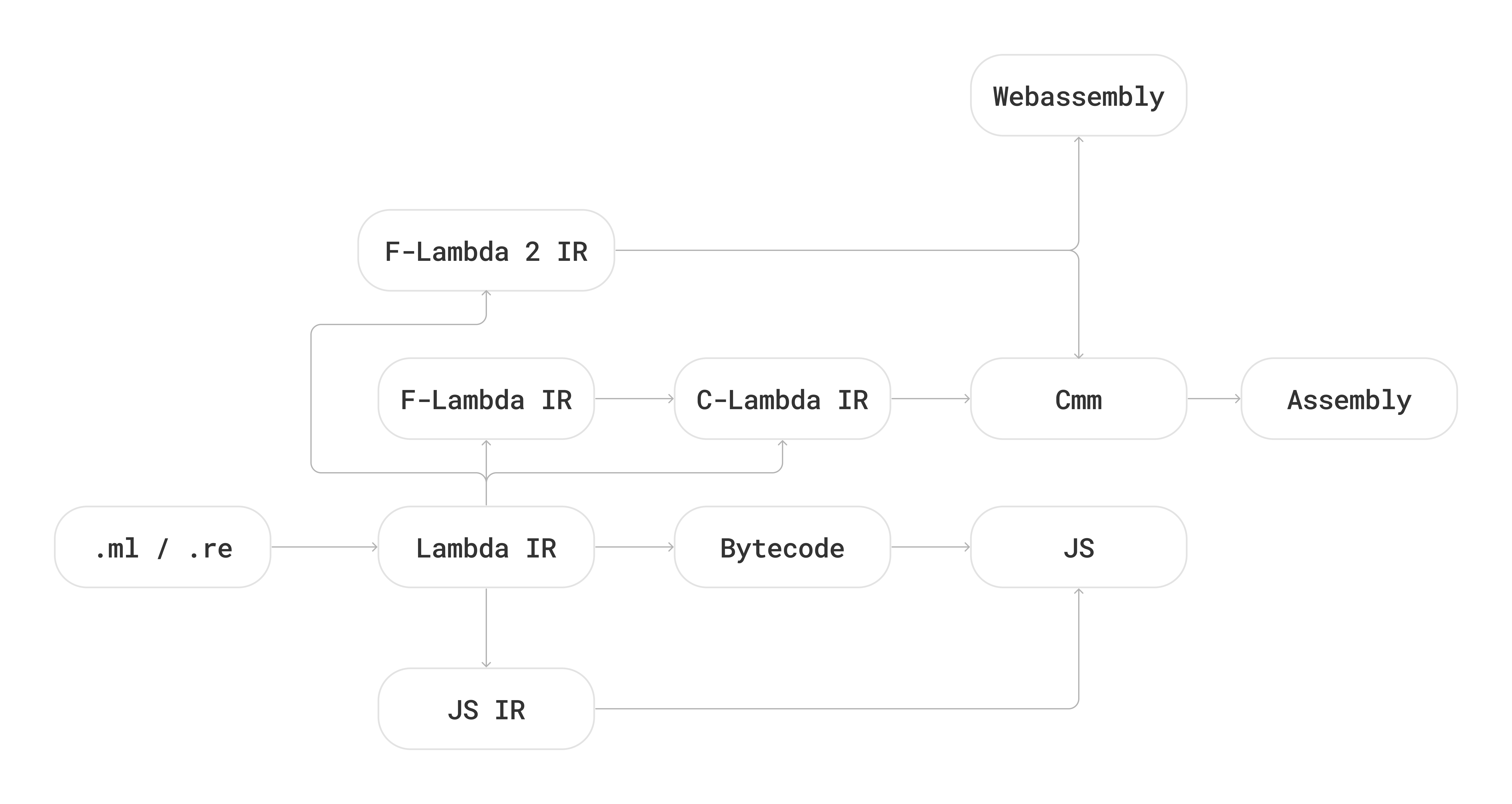Meetup 5: High level overview of how Melange compiler works
I lead this discussion. Here are the highlights.
High-level overview of the compilers internal pipelines.
I created the following drawing with Figma to help visualise.

Compiler commands to produce JS artifacts (without a build system).
We need a sandbox with melange, reason and ocaml compiler.
{
"dependencies": {
"ocaml": "5.x",
"@opam/reason": "*",
"@opam/melange": "*",
"@opam/ocaml-lsp-server": "*",
"@opam/ocamlformat": "*",
"@opam/ocamlformat-rpc": "*",
"@opam/dot-merlin-reader": "*"
}
}
Simple hello.ml with just one print_endline can be compiled with
esy melc ./hello.ml
If Belt is added to the hello.ml, path to melange libaries need to be included with -I flag
esy melc -I /Users/username/.esy/3__________________________________________________________________/i/opam__s__melange-opam__c__4.0.0-51-9d2a6c24/lib/melange/belt/melange ./hello.ml
To compile Reason files, -pp refmt --print binar is needed
esy melc -pp 'refmt --print binary' -impl hello.re -o hello.js
If a package were to be imported, then ocamlfind would be used to figure the include path
How all this knowledge could be used to implement a webpack loader.
A webpack loader attempting this can be found here
This loader is used here on this website as a docusaurus plugin
Next Meetup
Next, we use the webpack loader and continue working on the bare bones game demo running here. No prior knowledge needed other than basic HTML5 Canvas. Not even this meetup's discussion.
Stay in touch with us
Twitter: https://twitter.com/ReasonBangalore
